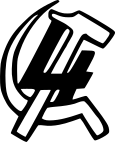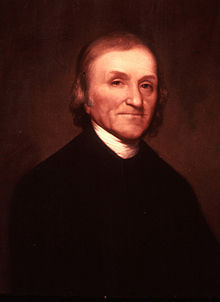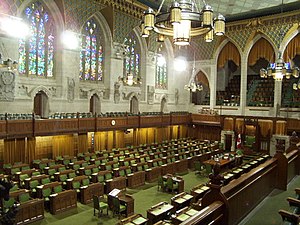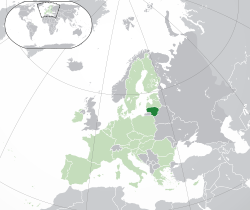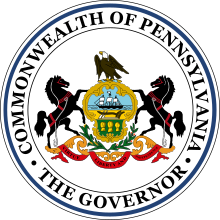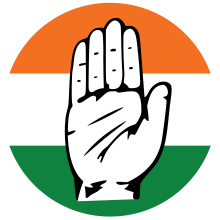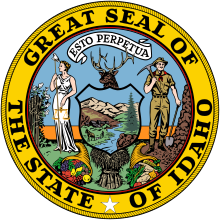
Back Portal:Politik ALS بوابة:السياسة Arabic بوابة:سياسة ARZ Портал:Политика Bulgarian প্রবেশদ্বার:রাজনীতি Bengali/Bangla Portal:Politika BS دەروازە:سیاسەت CKB Portál:Politika Czech Portal:Politik German Portal:Siyaset DIQ
| Main | Topics and categories | Tasks and projects |
The Politics portal
Politics (from Ancient Greek πολιτικά (politiká) 'affairs of the cities') is the set of activities that are associated with making decisions in groups, or other forms of power relations among individuals, such as the distribution of resources or status. The branch of social science that studies politics and government is referred to as political science.
It may be used positively in the context of a "political solution" which is compromising and non-violent, or descriptively as "the art or science of government", but also often carries a negative connotation. The concept has been defined in various ways, and different approaches have fundamentally differing views on whether it should be used extensively or in a limited way, empirically or normatively, and on whether conflict or co-operation is more essential to it.
A variety of methods are deployed in politics, which include promoting one's own political views among people, negotiation with other political subjects, making laws, and exercising internal and external force, including warfare against adversaries. Politics is exercised on a wide range of social levels, from clans and tribes of traditional societies, through modern local governments, companies and institutions up to sovereign states, to the international level.
In modern nation states, people often form political parties to represent their ideas. Members of a party often agree to take the same position on many issues and agree to support the same changes to law and the same leaders. An election is usually a competition between different parties.
A political system is a framework which defines acceptable political methods within a society. The history of political thought can be traced back to early antiquity, with seminal works such as Plato's Republic, Aristotle's Politics, Confucius's political manuscripts and Chanakya's Arthashastra. (Full article...)
Selected article
The Fourth International has been a communist international organisation working in opposition to both capitalism and Stalinism. Consisting of supporters of Leon Trotsky, it has striven for an eventual victory of the working class to bring about socialism. In Paris in 1938, Trotsky and many of his supporters, having been expelled from the Soviet Union, considered the Comintern to have become lost to "Stalinism" and incapable of leading the international working class towards political power. Thus, they founded their own competing "Fourth International". Throughout the better part of its existence, the Fourth International was hounded by agents of the Soviet secret police, repressed by capitalist countries such as France and the United States, and rejected by followers of the Soviet Union and later Maoism as illegitimate - a position these communists still hold today. The FI suffered a split in 1940 and an even more significant split in 1953. Despite a partial reunification in 1963, more than one group claims to represent the political continuity of the Fourth International. The broad array of Trotskyist Internationals are split over whether the Fourth International still exists and if so, which organisation represents its political continuity.
Featured picture

Located in Victoria, British Columbia, Canada, and officially opened in 1898 with a 500 feet (150 m) long facade, central dome, two end pavilions, and a gold-covered statue of Captain George Vancouver, the British Columbia Parliament Buildings are home to the Legislative Assembly of British Columbia.
Selected quote
Selected biography
Ed Stelmach (born 1951) was the Premier of Alberta, Canada, from December 14, 2006 to October 7, 2011. He spent his entire pre-political adult life as a farmer, except for some time spent studying at the University of Alberta. His first foray into politics was a 1986 municipal election, when he was elected to the county council of Lamont County. A year into his term, he was appointed reeve. He continued in this position until his entry into provincial politics. In the 1993 provincial election, Stelmach was elected as the Member of the Legislative Assembly for Vegreville-Viking. A Progressive Conservative, he served in the cabinets of Ralph Klein. When Klein resigned the party's leadership in 2006, Stelmach was among the first to run to replace him. After a third place finish on the first ballot of the leadership race, he won an upset second ballot victory over former provincial treasurer Jim Dinning. Stelmach's premiership has been heavily focused on management of the province's oil reserves, especially those of the Athabasca Oil Sands. Other policy initiatives have included commencing an overhaul of the province's health governance system, a re-introduction of all-party committees to the Legislature, and the conclusion of a major labour agreement with Alberta's teachers.
Did you know (auto-generated) -

- ... that María Elva Pinckert, motivated by the murder of her brother, started her political career in local politics in 1999?
- ... that Patricia Grace did not intend for her novel Potiki, about the impact of land development on an indigenous community, to be seen as political?
- ... that before entering politics, Romina Pérez worked at the Center for Legal Studies and Social Research, which "became a 'nursery' for intellectual and political cadres of the Movement for Socialism"?
- ... that although he was a former Indonesian prime minister, Soekiman Wirjosandjojo was not arrested during a political purge as he was considered a non-threat?
- ... that a political action committee paid $132,000 to former First Lady Melania Trump's fashion stylist for strategy consulting?
- ... that Valentina Bodrug-Lungu has declared that Moldova's political climate does not encourage female participation, despite having a woman president?
More did you know...
- ...that in the 1930s, Australia was home to a paramilitary Fascist organization called the New Guard?
- ...that the 1968 pamphlet Is the School House the Proper Place to Teach Raw Sex? claimed that sex education was a Communist conspiracy?
- ...that the American Society of Magazine Editors book The Best American Magazine Writing 2007 features investigative journalism about the Beslan school hostage crisis and survivors of Agent Orange?
- ...that the Libyan opposition has embraced "Zenga Zenga", an Israeli-created auto-tuned song and viral YouTube video that parodies Libyan ruler Muammar Gaddafi (pictured)?
- ...that depending on a time and place, the same social movement may be revolutionary or not?
- ...that the 2013 United States federal budget may impose a 23% cut on the defense budget due to the Budget Control Act of 2011, according to Secretary of Defense Leon Panetta?
In this month
- May 5, 2005 – A General Election in the United Kingdom sees Tony Blair's Labour government returned to office with a reduced majority of 66.
- May 14, 1948 – The Declaration of Independence of Israel is made.
- May 18, 1948 – The first Legislative Yuan of the Republic of China officially convenes in Nanking.
News and Current events
- August 11: 4 local government areas in New South Wales, Australia locked down after COVID-19 case
- August 11: Australia: AstraZeneca vaccine access expanded by Victorian government
- August 1: Australia: Victorian lockdown lifted
- July 29: Tunisia's president dismisses prime minister, suspends parliament
- July 25: Australia: Wikinews interviews Reg Kidd, mayor of the City of Orange, about COVID-19 lockdown and local government
- July 23: South Australia enters week-long lockdown to contain COVID-19 Delta variant spread
- July 21: Technological University Dublin senior lecturer Dr Lorcan Sirr speaks to Wikinews on housing market in Ireland
- July 21: Three rural councils in New South Wales, Australia enter 7-day lockdown
- July 21: Australia: Victoria lockdown extended by a week with 85 active cases recorded
- July 15: California governor signs new state budget, eligible Californians to get stimulus payments
Topics and categories
General images
Related portals
Associated Wikimedia
The following Wikimedia Foundation sister projects provide more on this subject:
-
Commons
Free media repository -
Wikibooks
Free textbooks and manuals -
Wikidata
Free knowledge base -
Wikinews
Free-content news -
Wikiquote
Collection of quotations -
Wikisource
Free-content library -
Wikiversity
Free learning tools -
Wiktionary
Dictionary and thesaurus
Sources
More portals
© MMXXIII Rich X Search. We shall prevail. All rights reserved. Rich X Search
